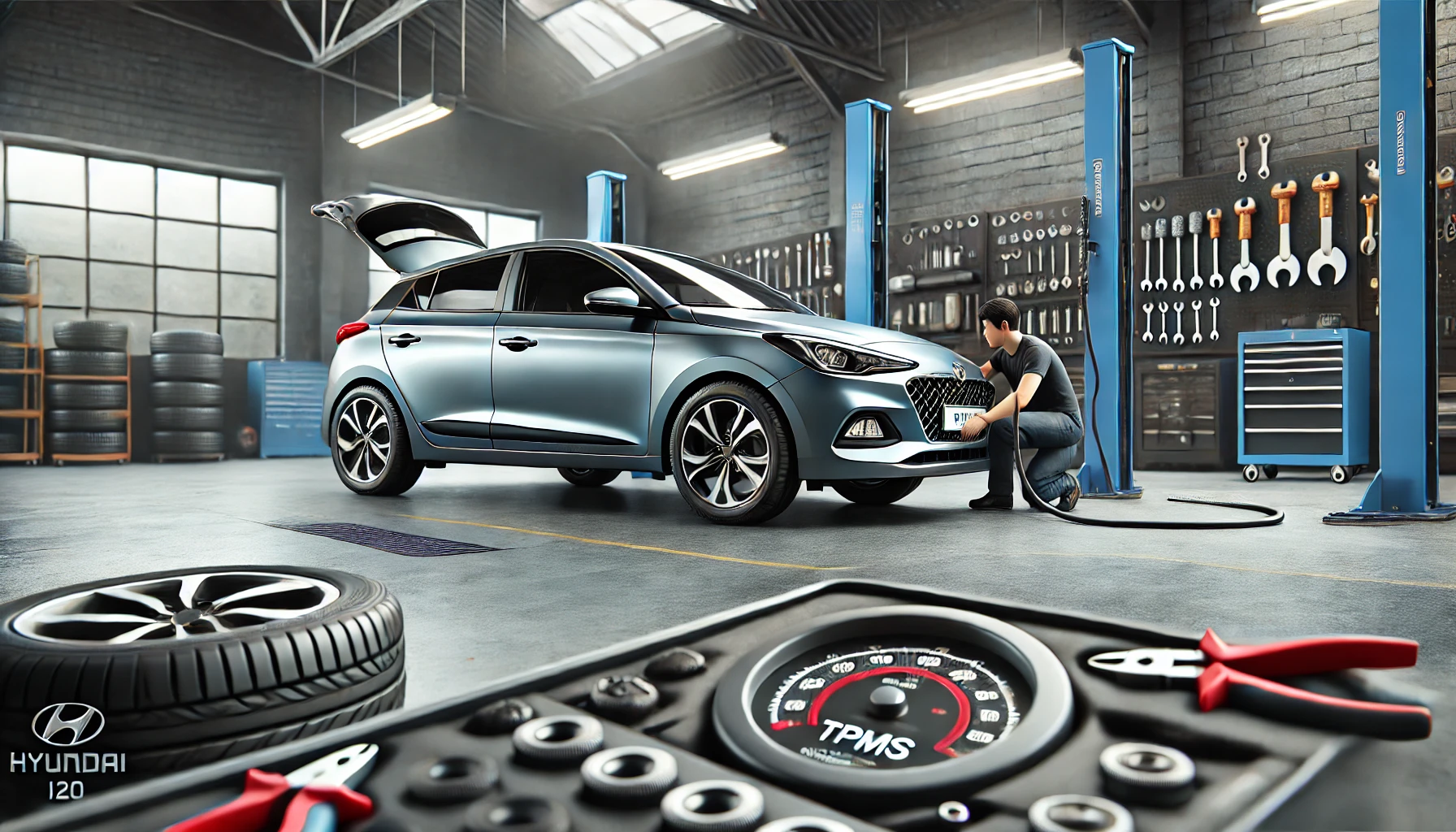
1. Overview of the Hyundai i20 TPMS
The Hyundai i20’s TPMS is designed to alert you if tire pressure is too low. When there’s an issue, the TPMS warning light will illuminate on the dashboard. If this light remains on even after adjusting the tire pressure, it’s likely due to one of the following causes:
2. Common Causes of TPMS Faults in the Hyundai i20
- Underinflated Tires: If tire pressure is below the recommended level, the system will alert you.
- Sensor Battery Issues: TPMS sensors have batteries that generally last 5–10 years, after which they may start failing.
- Damaged Sensors: Impacts or wear can damage sensors, preventing them from accurately reading or reporting pressure.
- Software or Signal Interference: In rare cases, the car’s TPMS system might face connectivity issues or software bugs.
3. Steps to Fix a Tire Pressure Sensor Fault in a Hyundai i20
Check and Adjust Tire Pressure
- Measure Tire Pressure: Use a tire pressure gauge on each tire. For the Hyundai i20, around 33 PSI is typically recommended for standard tires.
- Adjust the Pressure: If any tire is below the recommended PSI, inflate it to the correct level.
- Drive to Recalibrate: Often, driving at a steady speed over 25 mph for 10–15 minutes will allow the TPMS to recalibrate itself.
Resetting the TPMS Warning Light
If the light doesn’t turn off after inflating the tires, you may need to manually reset the system:
- TPMS Reset Button: Some Hyundai i20 models have a TPMS reset button (often below the steering wheel). Press it and hold for a few seconds until the TPMS light blinks, then release.
- Battery Disconnect: If there’s no reset button, you can try disconnecting the battery for a few minutes, then reconnecting it to see if the light resets.
Identify and Replace Faulty Sensors
If the warning persists:
- Diagnostic Tool or OBD-II Scanner: This tool can diagnose which sensor, if any, is faulty.
- Replace and Reprogram Sensor: If a sensor has failed, it will need to be replaced and programmed by a professional to sync with the car’s TPMS system.
4. Preventative Tips for Your Hyundai i20
- Regularly Inspect Tire Pressure: Check monthly to keep the tires in range.
- Seasonal Adjustments: Cold weather can decrease tire pressure; monitor during temperature drops.
- Sensor Check-Up: During regular service visits, have the sensors checked for wear and battery life.
